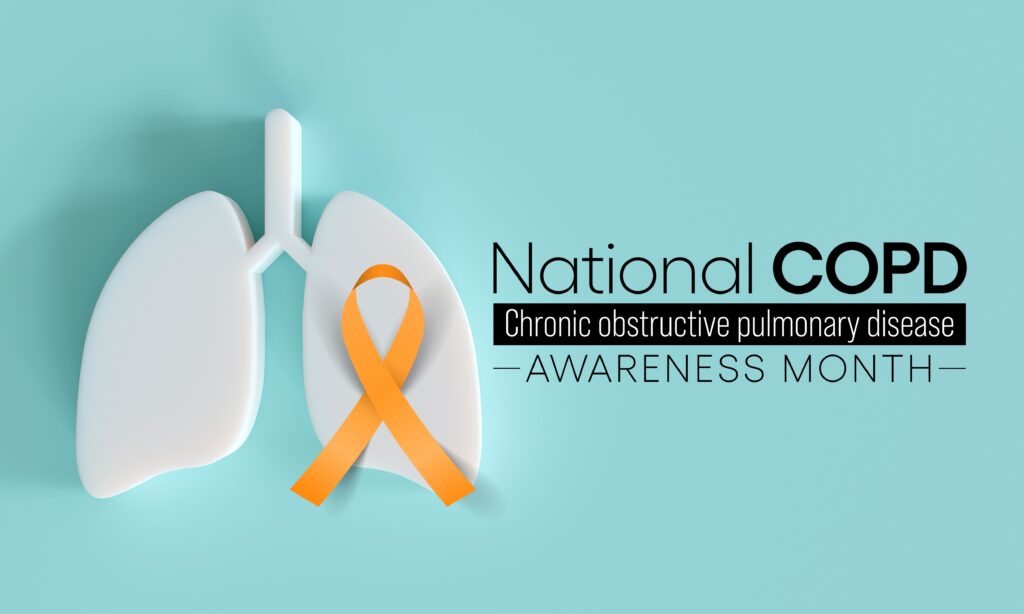November is home to many great holidays and celebrations. From well-known celebrations like Thanksgiving to lesser known treats like National Fried Chicken Sandwich Day (November 9th), there are many things that can distract you from healthcare awareness efforts for the month. COPD, or Chronic Obstructive Pulmonary Disease Awareness is celebrated and taught all throughout the month of November, so keep scrolling to learn more!
What is COPD
COPD, also known as chronic obstructive pulmonary disease, refers to a group of diseases that cause breathing-related problems, such as emphysema, chronic bronchitis, and more. Signs of COPD include frequent coughing or wheezing, excess phlegm or mucus production, shortness of breath, and difficulty taking deep breaths.
This diagnosis is life altering, to say the least. Without efforts to better your way of living to better care for your lungs and body, survival rate plummets as the diagnosis becomes more severe. Thankfully, due to hard work and dedicated efforts of those with COPD and those who care for them, there are plenty of resources for those who need the extra help in keeping a healthier lifestyle.
Groups like the COPD Foundation have created educational materials for patients, family, friends, caregivers, and more can manage their feelings and be the most helpful to those who need them. The COPD Foundation also has come up with COPD360Social, which is a social media community of patients, doctors, caregivers, loved ones, and more who are involved in the COPD community. Over 54,000 people have already joined the group, giving them access to educational materials, the ability to participate in research, chat with experts,and more. Utilizing groups like this is a great way to stay motivated on your journey to better health.
What Causes COPD?
COPD is a lung-based disease, so most risk factors come from dangerous inhalation of chemicals. That being said, there are other factors that one should be aware of, so check out this list of risks, pulled from the CDC and the American Lung Association, and determine if this is something you should be speaking to your doctor about:
-
Women have a higher risk
-
People older than 65 years of age
-
American Indians/Alaska Natives and multiracial non-Hispanics.
-
People who were unemployed, retired, or unable to work.
-
People with less than a high school education.
-
People who were divorced, widowed, or separated.
-
Current or former smokers.
-
People with a history of asthma.
-
Smokers
-
Those with exposure to air pollution
-
Those who are regularly exposed to secondhand smoke
-
People with an Alpha-1 deficiency
-
People with a history of childhood respiratory infections
-
People who work around chemicals, dust, and fumes
How Can I Get Involved?
Thankfully, there are many ways to get involved! If you are looking to volunteer as a caregiver, at a facility, or even for an event, find your local COPD community. You can search locally online or call into your local respiratory therapists to see where they might need a helping hand.
If your schedule or location does not allow for many hands-on opportunities, you can also help by ensuring that our air is kept clean and clear. Pollution control rules, designated areas for smokers, and compliance with environmental regulations will help bring down many of the risk factors of COPD. Getting involved legally, locally, or even just as an individual example can be a great start.








